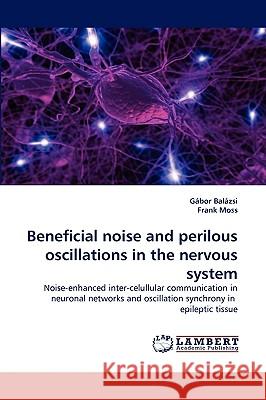Beneficial Noise and Perilous Oscillations in the Nervous System » książka
Beneficial Noise and Perilous Oscillations in the Nervous System
ISBN-13: 9783838342276 / Angielski / Miękka / 2010 / 104 str.
Computational modeling of cooperative dynamics in excitable systems is important for uncovering mechanisms that underlie perturbation propagation in the nervous system. In this dissertation, two spatially extended networks of FitzHugh-Nagumo neurons operating in the subexcitable and hyperexcitable regime are studied by computational methods, leading to two key conclusions. First, the length and speed of perturbation propagation in the subexcitable FitzHugh-Nagumo system is maximized by spatiotemporal noise of optimal intensity. This indicates that random fluctuations in neuronal excitability can enhance perturbation propagation in the nervous system. Second, defining novel measures to characterize the synchronization of hyperexcitable FitzHugh-Nagumo oscillator networks for various strengths of phase- attractive and phase-repulsive coupling, significant differences in calcium dynamics can be shown between astrocyte cultures originating from epileptic and normal brain tissue.
Computational modeling of cooperative dynamics in excitable systems is important for uncovering mechanisms that underlie perturbation propagation in the nervous system. In this dissertation, two spatially extended networks of FitzHugh-Nagumo neurons operating in the subexcitable and hyperexcitable regime are studied by computational methods, leading to two key conclusions. First, the length and speed of perturbation propagation in the subexcitable FitzHugh-Nagumo system is maximized by spatiotemporal noise of optimal intensity. This indicates that random fluctuations in neuronal excitability can enhance perturbation propagation in the nervous system. Second, defining novel measures to characterize the synchronization of hyperexcitable FitzHugh-Nagumo oscillator networks for various strengths of phase- attractive and phase-repulsive coupling, significant differences in calcium dynamics can be shown between astrocyte cultures originating from epileptic and normal brain tissue.











